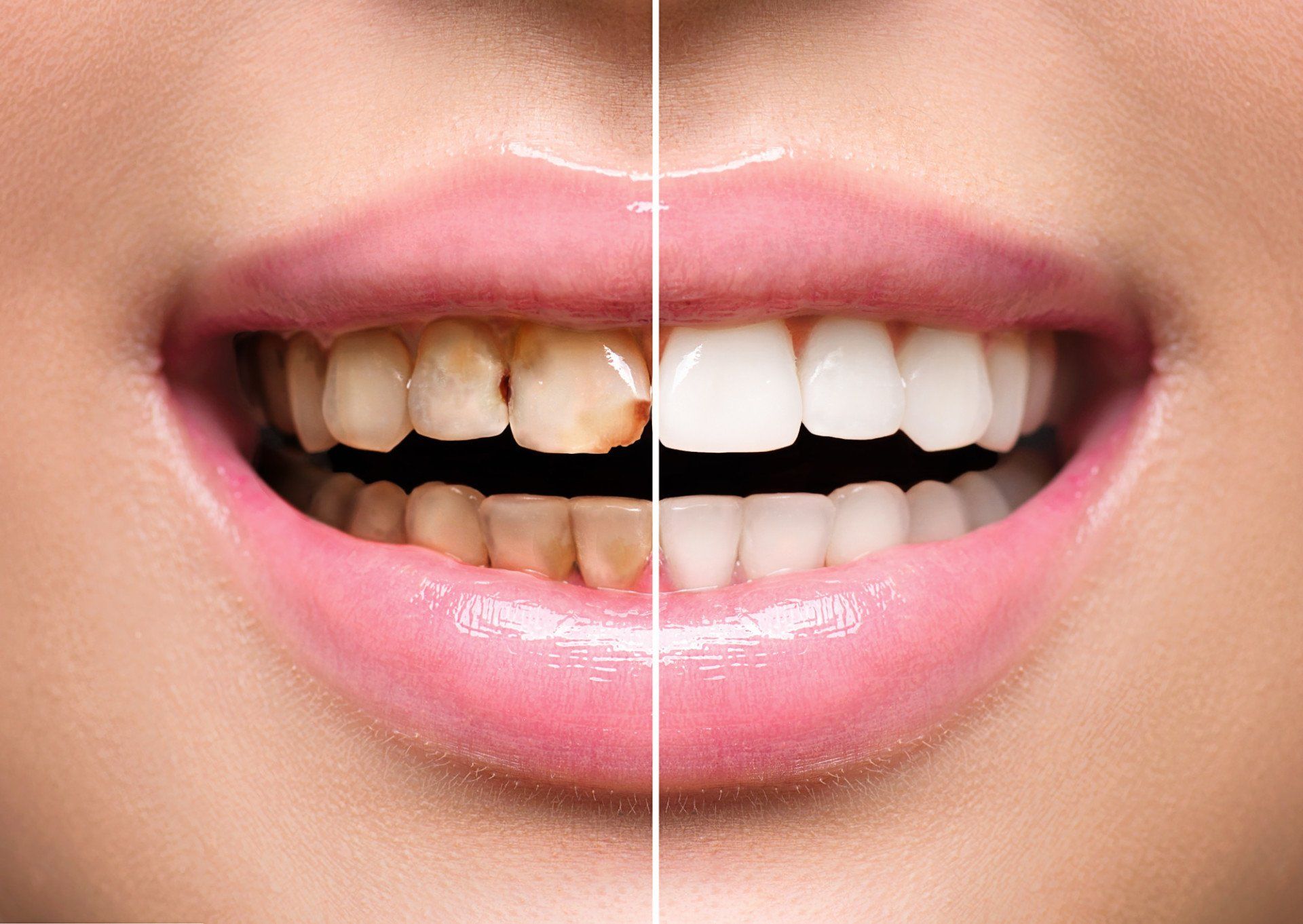What It Means When You Have Bleeding Gums When Brushing
- By Potomac Falls Family Dentistry
- •
- 30 Sep, 2018
- •
It can be concerning to see blood in the sink when brushing. Read on to learn what it means when you have bleeding gums when brushing.

Noticing blood in your mouth after brushing or flossing can be concerning.
Is there something wrong? Did you do something wrong? Should you go to see your dentist immediately?
Bleeding gums aren't something you should ignore or take lightly. They could be a sign of a serious issue like gum disease or bad oral hygiene habits. While you should see a dentist if you notice consistent bleeding, it's helpful to understand exactly what could be causing this issue.
There are a few common things that can cause bleeding gums that you can fix. Keep reading to learn the top reasons why your gums might be bleeding, and what you can do to avoid it.
Aggressive Brushing
If you brush too hard, too often, or with a toothbrush that's too rough on your gums, this can cause bleeding. Healthy gums can usually take somewhat aggressive brushing, so this may be a combination of unhealthy gums (plaque build up, not flossing enough, etc) being treated too aggressively with your toothbrush.
Try not to brush too hard, as this can cause bleeding. You may also be brushing too often. Don't eat too often between meals so you won't have to brush extra times per day.
New Toothbrush
Along the same lines as aggressive brushing is brushing with a toothbrush that's too harsh on your gums. This can often happen when you switch to a new toothbrush. Your old toothbrush is worn in and likely has softer bristles compared to a brand new one with tougher bristles that you're not used to yet.
Be cautious as you transition to a new toothbrush. Be gentle your first few brushes to get used to the new hardness of the bristles.
You should also be sure to get the proper type of toothbrush that's going to work for you and your gums. Everyone has different gum sensitivity, so you need to get a toothbrush that will work well for you.
Different brushes will have different strength bristles. If you have sensitive gums, you may want to go for a "soft" bristle toothbrush. If you don't have particularly sensitive gums and you need a toothbrush that's going to scrub your teeth clean, you may be able to use a harder bristled brush.
Flossing Too Hard/Incorrectly
You've probably experienced, or at least heard of, people's gums bleeding a lot when they visit the dentist. This is usually because people don't floss on their own at all.
Only 30 percent of people floss daily, which is what's recommended. Besides that, many people who do floss either floss too hard or not correctly. This can lead to bleeding gums as the flossing will irritate the tissue and cause it to bleed.
You also want to be gentle as you start a flossing routine. If you've gone from never flossing before to now flossing daily, your gums aren't going to be used to it. This change in routine can also lead to bleeding as your gums get healthier and get used to the constant flossing.
And don't let the bleeding scare you off from regular flossing. Flossing helps to keep your gums healthy. As you floss more, you should notice that your gums bleed less and less and eventually not at all.
Gingivitis
Gingivitis is one of the first stages of gum disease. When you don't floss or brush your teeth correctly or often enough, this causes plaque to build up around your gumline.
This leads to gingivitis which is essentially swollen and inflamed gums. When your gums are inflamed and swollen, they'll bleed very easily when brushing and flossing.
Your dentist will be able to tell whether you have gingivitis. It's important to have regular check-ups to identify this issue before it progresses into the later stages of gum disease.
Pregnancy
Those who are pregnant often experience more bleeding than others. This actually has a name: pregnancy gingivitis.
When you're pregnant, your hormones shift to support the fetus and maintain your health throughout pregnancy. A downside to this hormonal shift is that it alters the amount of blood flow that your gums get, which can lead to tenderness, inflammation, and bleeding.
The hormone shift also affects how your body reacts to and fights off bacteria, like bacteria found in plaque. This leads to the easier buildup of plaque (aka bacteria) in your gums, which leads to gingivitis and bleeding gums.
This type of "gingivitis" will usually clear up after pregnancy as hormones return to normal. However, it's hard to distinguish whether this gingivitis is gum disease or actually caused by pregnancy and hormone shifts.
It's always best to discuss with your dentist to determine the true cause in order to prevent potential gum disease.
Side Effect of Medication
Certain types of medications can cause your gums to bleed more easily when you're taking them. Some examples of these types of medications include:
- Blood thinners
- Blood pressure medications
- Chemotherapy drugs
Other medications can indirectly lead to bleeding gums. Any medication that causes swelling or inflammation in soft tissues (like the gums) can lead to bleeding as well. Some drugs that can do this include:
- Immunosuppressant medications
- Calcium channel blockers
- Seizure medications
These side effects don't happen in everyone, but they can occur. If you're taking any of these types of medications and are experiencing bleeding gums, speak to your doctor or your dentist. You may be able to switch to a different medication, or you may be able to take steps to reduce the negative side effects.
Why You Have Bleeding Gums: Wrapping Up
If you've noticed that your gums are bleeding when you brush your teeth, that's not something you should ignore. While it might just be a sign that you need to be a bit gentler on your teeth when brushing, it could also be a sign that you're in the first stages of gum disease, which is a serious health issue.
Hopefully, this article has helped you understand the cause of your bleeding gums. If you're still confused or want to make sure that you're doing everything you can to prevent this issue from persisting, contact us.
We can give you some advice and get you an appointment with one of our experienced and trusted staff.

